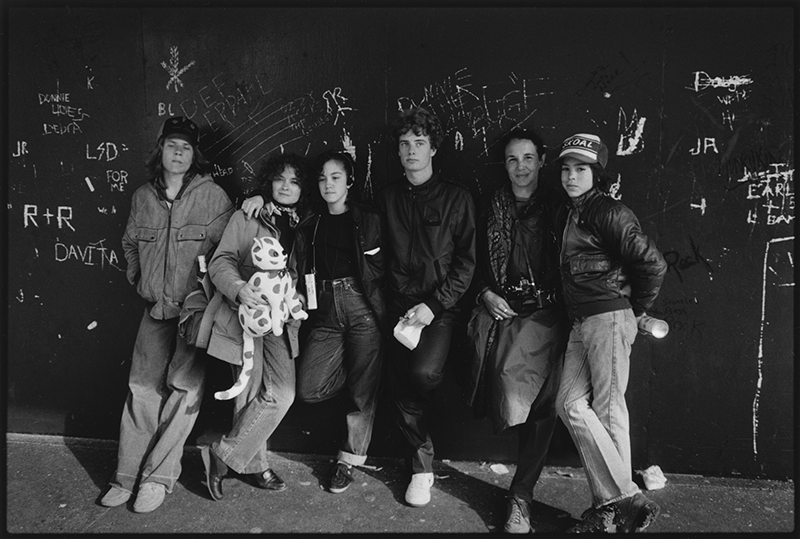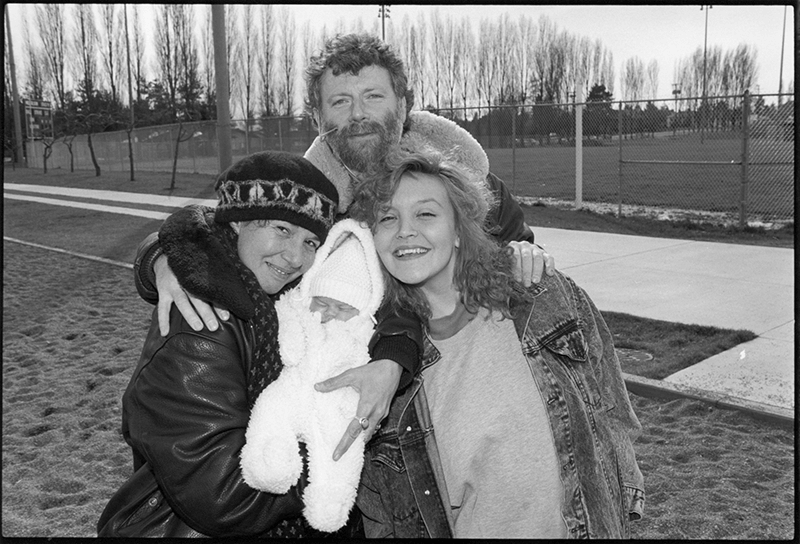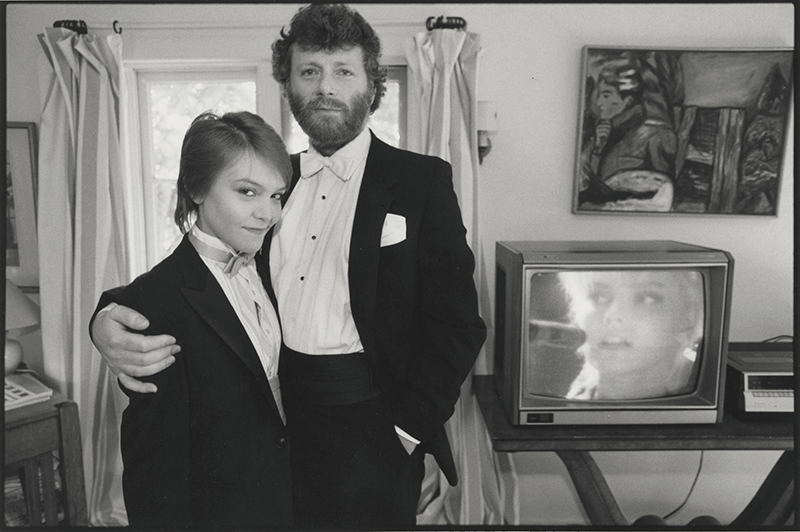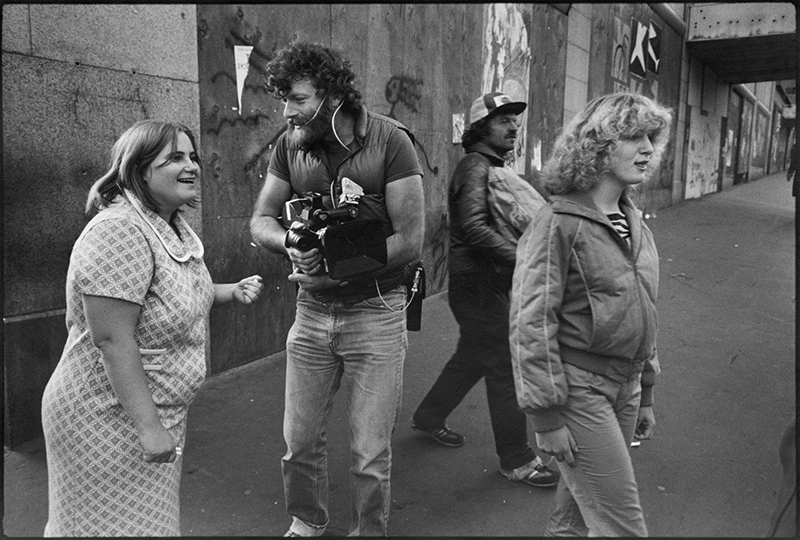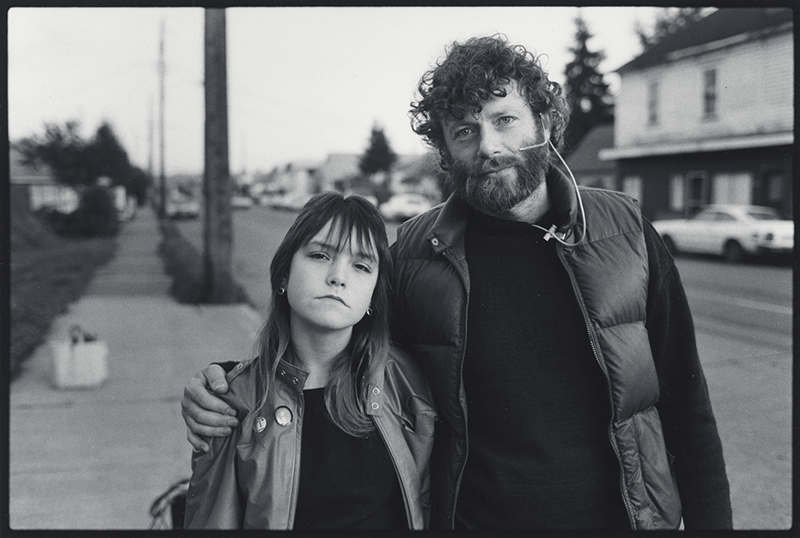Martin Bell's groundbreaking, Academy Award-nominated 1984 documentary Streetwise introduced us to a fiercely independent group of homeless and troubled youth who made their way on the streets of Seattle as pimps, prostitutes, panhandlers, and small-time drug dealers. Of the unforgettable children featured in Streetwise, none was more charismatic than its beguiling, self-possessed thirteen-year-old protagonist "Tiny." Tiny (Erin Blackwell, who earned her street name due to her size) dreamt of living on a horse farm, of diamonds and furs, and of having ten children.
It was documentary photographer Mary Ellen Mark who set Streetwise in motion. Bell and Mark had met on a back lot of London's Pinewood film studios in 1980. Mark was there, making stills for Miloš Forman's forthcoming film Ragtime (1981). Bell was the cinematographer on a documentary focusing on Ragtime's star, James Cagney. Bell recalls the moment he first met Mark, who very quickly became his partner in life and love, up until her death in 2015. Bell:
"This beautiful woman with waves of curly black hair walked by, and she was festooned in cameras. And, she smiled. I thought she was smiling at somebody else, and then I realized she was smiling at me. And then she said, "You're working on this thing with Jimmy Cagney, right? I just got this great picture of him. If you go around the corner now, you'll get something wonderful." And that, essentially, is the story of our relationship."
From that point on they traveled together—to Bali, to India, to Mexico . . . looking for a project to realize together. In 1983, both Mark's and Bell's desire for a great story they could collaborate on was fulfilled beyond anything they could have imagined. Bell, who is British, was again in London when he got the call:
"Mary Ellen called me from Seattle where she was on assignment for Life magazine to photograph teenagers who were homeless and living on the streets of downtown Seattle, which had just been voted America's most livable city. She'd met Tiny her first night photographing, and knew immediately that she was a "star." She told me, "she's beautiful, engaging, smart, and impossible to forget." But Tiny ran away from her that first night—she thought Mary Ellen was a cop. But Mary Ellen—who never gave up—found someone who knew where Tiny lived, and went to see her."
That meeting changed all of their lives forever. Mark's work on this project was first published, in 1988, as the book Streetwise, in keeping with the name of Bell's film. Following that first encounter with Tiny over thirty years ago, Mark and Bell continued to regularly photograph and film Tiny, respectively, creating what became one of their most significant and long-term projects. In 2015 Mark's book Tiny: Streetwise Revisited was published by Aperture, with her full engagement and collaboration. Mary Ellen Mark died, having completed all of her work on this collection, which incorporates the most powerful images from her earlier book Streetwise, and then takes us through Tiny's life, from a thirteen-year-old to a middle-aged mother of ten.
Synergistically, Bell's soon-to-be-released documentary film, TINY: The Life of Erin Blackwell, weaves together thirty years of at- times devastating footage, including never-before-seen sequences from the filming of Streetwise, to intimately chronicle Erin Blackwell's complex story.
The commitment both artists made to narrating Tiny's life, the very fact of this longterm, ongoing relationship, and the trust it engendered, is in itself extraordinary. Tiny often granted them what Bell refers to as "the privilege of being invisible. Tiny has always been so forthright about who she is, so unself-conscious." Other times, Mark and Blackwell—both strong, willful women—challenged each other with a raw directness matched by equally fervent, mutual respect. Still, Mark and Bell's presence, almost right from the start, became startlingly second nature to Tiny, her street community, her mother, and subsequently, Tiny's children. Life went on as it would have—whether or not they were there to document.
Early on Mark and Bell offered to bring Tiny back to New York City to live with them—the only caveat that she commit to going to school. Tiny said "no," and so Mark and Bell continued to bear witness to Tiny's life, as it unfolded on the streets and in the environs of Seattle.

